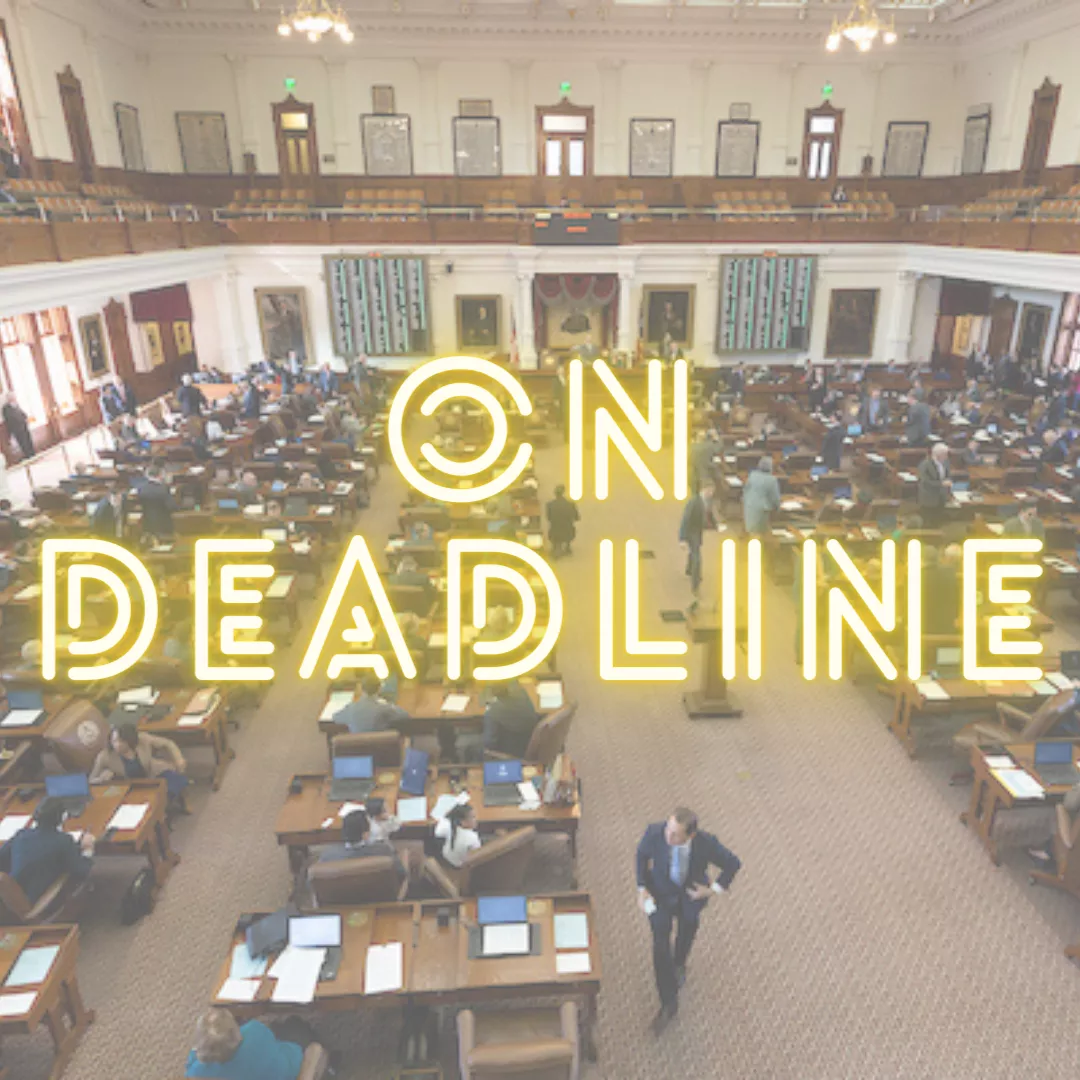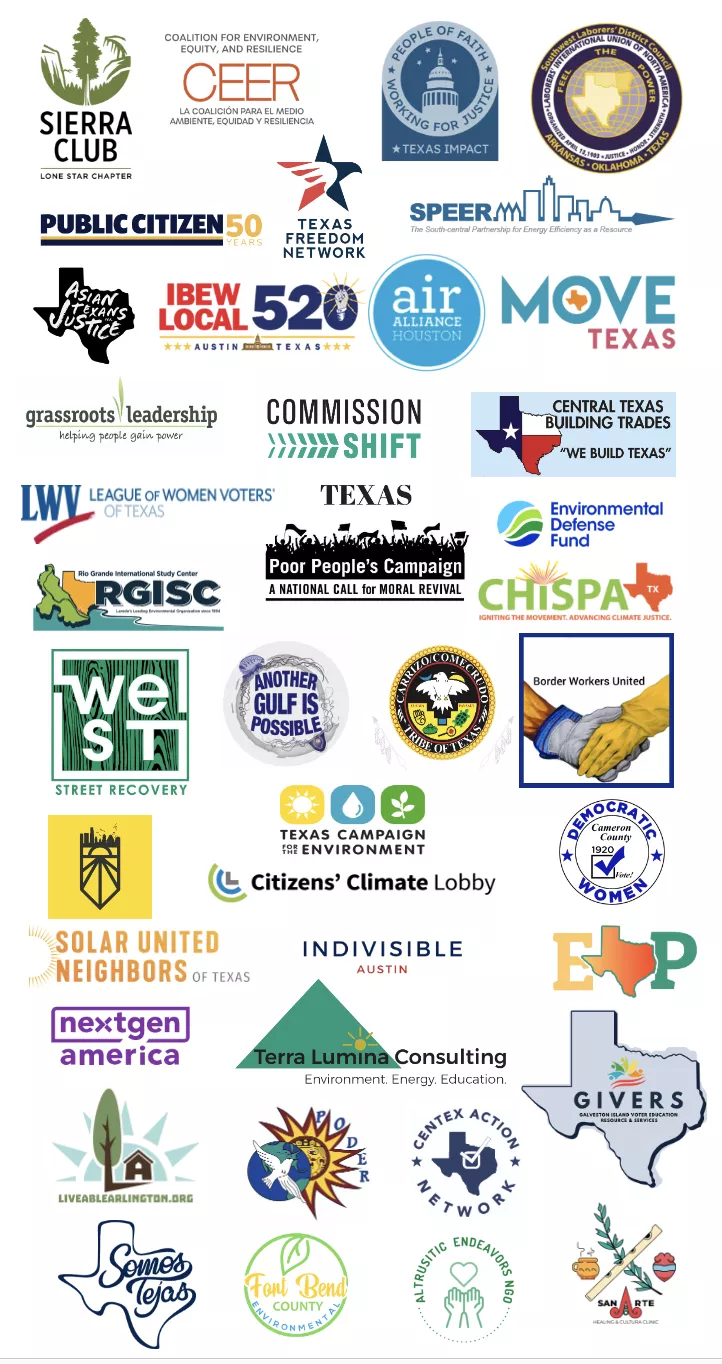
Photo: Texas House of Representatives, by Al Braden.
As the deadline to get Senate bills out of House committees approached Friday night, the fate of a historic energy efficiency bill became clear: very powerful corporate utilities like Oncor, CenterPoint, and AEP Texas had killed the best chance to control rising utility bills and protect Texas families from what will be a huge increase in costs in the coming years.
Senate Bill 258, which would have increased the state’s goal for energy efficiency fourfold by 2030, needed to get out of the House State Affairs Committee by Saturday to stand a chance to survive the deadline to pass bills in the 88th Texas Legislature. As our Conservation Director, Cyrus Reed, as well as many constituents from across Texas, worked frantically to persuade several Republicans in that committee, the effort ultimately came up short but not for lack of trying.
“SB 258 was a great bill with bipartisan support. It passed the conservative Senate, and we knew that many Republican state representatives supported it too, but were unwilling to go against the demands of the investor-owned utilities whose political influence at the Texas Capitol is significant,” said Reed.
Public statements against the pro-consumer bill were few but strategic. During its hearing in State Affairs last Wednesday, only Texas New Mexico Power testified against SB 258, claiming that it would be too aggressive and expensive. It was an ironic position to take given the context of the other pieces of energy legislation that are close to being sent to the Governor’s desk.
I find it ironic or maybe not that all #txlege the utilities have pushed solutions that will cost consumers more but the one solution that could help consumers save money they are opposing. more worried about their performance bonus than their customers. @oncor @AEPTexas https://t.co/2YDujwdSUH
— Cyrus Reed (@cyrustx) May 19, 2023
Indeed, proposals that would saddle Texans with $9 billion (or more) in extra costs annually could soon become law, yet energy efficiency legislation that would mitigate rising costs, reduce stress on the electric grid, and create more local jobs across the state, could not get the same support from lawmakers who earlier voted for energy bills that would hurt our pocketbooks and enrich energy companies even more.
“You won’t hear many public statements against energy efficiency from these utilities because they don’t want you to know about the potential their energy savings programs have to reduce your bill,” said Matt Johnson, Political & Communications Director for the Sierra Club’s Lone Star Chapter. “It’s because they earn more profit from poorly insulated homes, and they want to preserve their performance bonuses for achieving very tiny goals.”
In the latest round of utility energy efficiency proposals at the Public Utility Commission of Texas, utilities submitted their plans to meet an energy demand goal roughly one quarter of one percent of peak load, a mark most of them have been achieving for more than a decade. As a reward for meeting the goal, they are allowed to give themselves a performance bonus - paid for through utility rates that are passed on to Texas families. In its filings for 2023, for example, Oncor proposed that their bonus should be $28 million, which is roughly 34% of the total cost of their programs requested in 2023.
“What’s so disturbing about these special interests killing SB 258 is that there were already compromises in the bill that would exempt utilities if they were unable to meet the new goal by 2030,” said Dave Cortez, Sierra Club’s Lone Star Chapter Director. “All they would have had to do is appeal to the PUC for an exemption, but ultimately they exert their influence, the status quo and their easy performance bonus stays intact, and working class Texans are forced to pay more for years. Texans deserve better than this.”
Update on other energy bills
As the legislative session winds down, many electric grid reform bills will be on the House floor today and tomorrow. These bills contain some good provisions - like a cost cap on any expensive PUCT reliability fix - but also some potentially costly provisions, like a scheme to loan money for fossil fuel plants. Two good bills that we helped shepherd - SB 2453 which would allow the state to adopt the latest energy code for new buildings, and SB 114, which would create a new residential demand response - are on tomorrow’s calendar and still could become law.
Lots can still change in the next few days. There is still a chance that the House and Senate fail to reach agreement on energy bills, including some of the more costly ones to consumers. If that happens, energy and grid reliability could be part of a special session, which may create another opportunity to raise our state’s energy efficiency goals. If it doesn’t materialize, however, advocates are determined to continue the campaign to shift power to the people.
“With still relatively little support inside the Capitol, Sierra Club and its allies were able to move a meaningful bill through one chamber and almost through the second in a very polarizing time,” said Cortez. “We are committed to building the grassroots power we need to win long term, and I am so pleased and humbled to see so many people engaged and ready to build on the momentum we have generated together.”
